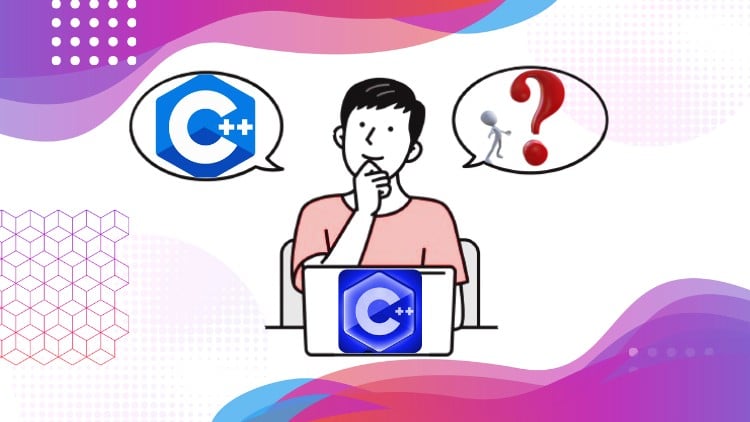C++ Programming Quiz for Beginners Job Interview Preparation
Master C++ Language with Fun and Challenging Quizzes | Challenge Yourself and Improve Your C++ Programming Coding Skill
4.83 (3 reviews)

1,389
students
71 questions
content
Mar 2025
last update
$13.99
regular price
What you will learn
Basic Syntax: Understanding the basic structure and syntax of C++ programs.
Data Types and Variables: Learning about different data types (int, float, char, etc.) and how to declare and use variables.
Operators: Mastering arithmetic, logical, relational, and bitwise operators in C++.
Control Structures: Implementing control structures like if-else statements, switch cases, loops (for, while, do-while).
Functions: Defining and invoking functions, understanding function parameters, return types, and overloading.
Arrays and Strings: Working with arrays and strings, including their manipulation and usage in C++.
Pointers: Understanding pointers, pointer arithmetic, and their application in dynamic memory management.
References: Using references in functions and learning how they differ from pointers.
Object-Oriented Programming (OOP) Basics: Grasping the fundamental concepts of OOP, including classes, objects, and encapsulation.
Inheritance: Understanding how inheritance works in C++, including single and multiple inheritance.
Polymorphism: Implementing polymorphism using function overriding and virtual functions.
Constructors and Destructors: Learning about constructors, destructors, and their roles in object lifecycle management.
Operator Overloading: Understanding how to overload operators in C++ for custom behavior.
File Handling: Working with file input and output (I/O) streams, reading from and writing to files.
Exception Handling: Learning how to handle exceptions using try, catch, and throw statements.
Standard Template Library (STL): Exploring the STL, including vectors, lists, sets, maps, and their usage.
Iterators: Using iterators to traverse through STL containers.
Templates: Creating function and class templates for generic programming.
Memory Management: Understanding dynamic memory allocation, deallocation, and avoiding memory leaks.
Debugging and Problem Solving: Enhancing problem-solving skills through debugging, analyzing code errors, and optimizing solutions.
Screenshots




6142881
udemy ID
8/23/2024
course created date
8/25/2024
course indexed date
Angelcrc Seven
course submited by